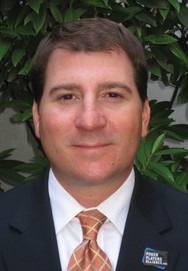






Federal Judge Rules Poker Is A Game Of SkillJudge Overturns Conviction Against Man Who Ran Poker Game |
|
|
 Lawrence DiCristina was arrested last year, charged and convicted of running an illegal gambling business and faced up to 10 years in prison for spreading a poker game in a warehouse while taking a 5 percent rake.
Lawrence DiCristina was arrested last year, charged and convicted of running an illegal gambling business and faced up to 10 years in prison for spreading a poker game in a warehouse while taking a 5 percent rake.
New York courts have long considered that poker contains a sufficient element of chance to constitute gambling under that state’s laws, however, DiCristina was convicted of violating the Illegal Gambling Business Act (IGBA) of 1955, a federal law.
The jury’s verdict, however, didn’t sit well with Federal Judge Jack B. Weinstein, who overturned the conviction and ruled that poker is more of a game of skill than a game of chance.
Weinstein pointed out that the goal of the IGBA was “to give the Federal Government a new substantive weapon which will strike at organized crime’s principal source of revenue: illegal gambling. The statute’s scope did not encompass all state gambling crimes, but only betting, lottery or numbers activity.”
This historic decision marks the first time that a federal court has ever ruled on whether or not poker constitutes a game of skill.
During the trial, DiCristina’s lawyer Kannan Sundaram called an expert witness, Dr. Randal D. Heeb. The statistician, economist and poker player testified that in the long run, the game favored those with those the most skill.
In his testimony, Heeb said, “Over how long does it take for skill to essentially show itself and predominate over the element of chance? And the answer is that it’s sufficiently few number of hands, that a player could reach that number of hands in a few playing sessions. And, again, depending on how skillful that player is, an extremely skillful player, that player’s skill would manifest itself in that player’s results relatively quickly.”
 Weinstein agreed, stating in his ruling that “the most skillful [poker] professionals earn the same celestial salaries as professional ballplayers.”
Weinstein agreed, stating in his ruling that “the most skillful [poker] professionals earn the same celestial salaries as professional ballplayers.”
He added in his conclusion, “Neither the text of the IGBA nor its legislative history demonstrate that Congress designed the statute to cover all state gambling offenses. Nor does the definition of gambling include games, such as poker, which are predominated by skill.”
Heeb also commented on the strategy involved in poker and how it differs from other gambling options.
“The player in a poker game is making all of the decisions, making all the plays, which include whether or not to wager on a particular hand and how much. And, in fact, the act of wagering itself is the essence of the decision. So in one sense in a gamble over any other mechanism, whether it was a bet on a baseball game or a bet on the roll of the dice, the wager itself is completely independent of the event being wagered on. Whereas, in poker, the wager is not in the same sense a wager on the outcome. It is the strategic choice that you are making. You are trying to influence the outcome of the game, either by the amount that you are wagering, trying to build up and win more money.”
Heeb discovered that, “many people make a living playing poker and win consistently over time” whereas “it is impossible to make a living and to win consistently playing casino games such as roulette” where chance predominates."
Furthermore, Weinstein addressed the Unlawful Internet Gambling Enforcement Act (UIGEA) of 2006 by allowing data sets from online poker in Heeb’s testimony. Heeb testimony hinged on his analysis of 415 million hands of no-limit hold’em that were played on PokerStars from April of 2010 to March of 2011.
 Heeb stated, “The game is a game of skill in exactly the same way, whether it’s played live or played over the internet. So my conclusions carry over exactly to when the exact same game is played, whether it is played in person, played with cards, or played electronically over the internet. The only difference between playing live and playing [online] is that the live game brings in some additional elements of skill which are not available to the internet player.”
Heeb stated, “The game is a game of skill in exactly the same way, whether it’s played live or played over the internet. So my conclusions carry over exactly to when the exact same game is played, whether it is played in person, played with cards, or played electronically over the internet. The only difference between playing live and playing [online] is that the live game brings in some additional elements of skill which are not available to the internet player.”
The Poker Players Alliance (PPA) filed an amicus curiae brief on the case, presenting arguments and providing expert witnesses for the defense. In a statement, PPA Executive Director John Pappas said, “As we worked for years defending players against vague gambling laws, we have patiently waited for the right opportunity to raise the issue in federal court. Today’s federal court ruling is a major victory for the game of poker and the millions of Americans who enjoy playing it.”
The U.S. attorney’s office has not confirmed whether or not it would appeal.
